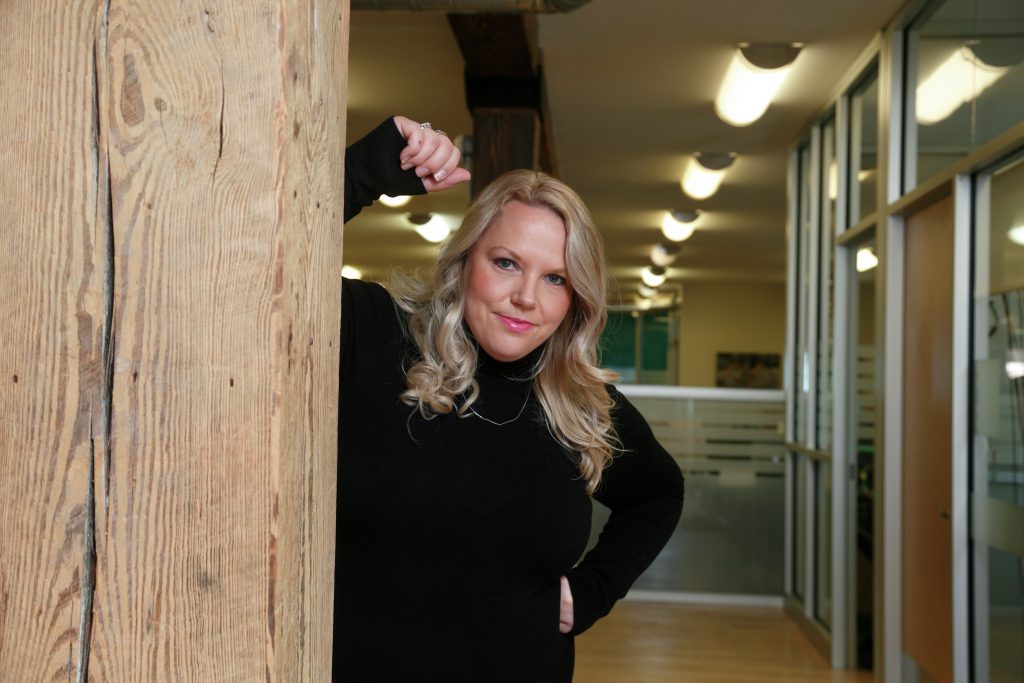So, You Want to Be Your Own Boss…
Entrepreneurship comes with a host of challenges. Rewarding challenges,
but harsh challenges nonetheless
Photo: SEED Learning founder, Anita Sutton
ENTREPRENEURSHIP IS INHERENTLY risky. It means putting a desire to forge your own path ahead of the comfort of security. After all, what else would compel someone to leave a pleasant job with regular hours, a regular paycheque and maybe even perks like benefits and vacation time?
The answer, more often than not, is that the freedom to succeed or fail, by your own hands, is more desirable for some than even the cushiest corner office could be.
Anita Sutton is one such entrepreneur. After building a successful career at firms that included local luminaries Startech.com and CARPROOF, she made the decision to strike out on her own, founding SEED Learning in 2017. SEED delivers social and emotional intelligence training services to aimed at reducing incidents of bullying, suicide and crime.
“I knew a long time ago that I was going to eventually go out on my own, and knew I would know when the time was right,” Sutton says. “I’ve been blessed in my career to work at some phenomenal companies for some great leaders, and when I was faced with a big decision in 2017, I knew it was time.”
“These people know me; they know how competitive and tenacious I can be and they supported me when I said those seven crazy words: ‘I’m going to start my own company’” —Anita Sutton
For Sutton, it was the right opportunity at the right time. “There was a significant gap in the marketplace, and my experience was at the right place to launch SEED Learning. I was finally ready to stop ideating and start executing on my vision.”
When making a big decision like starting your own business, it’s important to have a support network you can rely on for advice and support. When Sutton finally made the decision to strike out on her own, she says her husband—“my biggest cheerleader”—was the first person she turned to.
“I benefit from a solid support circle made up of family and friends, most of which I’ve had close relationships with for over 20 years,” she says. “These people know me; they know how competitive and tenacious I can be and they supported me when I said those seven crazy words: ‘I’m going to start my own company.’”
When questioned about the scariest aspect associated with starting her own venture, Sutton doesn’t hesitate. “The scariest thing for me is the fact that I’m putting my family’s financial wellness at risk to start the company. Even when it becomes a huge success, it doesn’t happen overnight,” she says.
“People have this vision of a struggling entrepreneur working day and night, bootstrapping to get their venture off the ground. That’s all true. Now add the layer of a husband, kids, a dog, a mortgage… you get the point. This is terrifying; they aren’t used to this life. I’ve always worked hard, but I always received a regular paycheque and now I have to rely on my sheer will to make this thing amazing to do right by them.”
Of course, the inherently risky nature of entrepreneurship means not every story can have a happy ending. Road bumps, challenges, hiccups, pivots and yes, failure, are all a part of the entrepreneurial landscape. For Sutton, her concerns are, understandably, centered around scaling the right way.
“I’ve been musing on bringing a co-founder on board,” she says, “[but] choosing the wrong one could be disastrous for the company and its future. You may have read about Eric Ries’ disastrous Hollywood-style breakup with his first co-founder in the pouring rain in the middle of a street in the book The Lean Startup. I want to ensure proper due diligence to choose someone who has the strengths I don’t have and the sincere belief in the company’s mission, vision and values.”
The people that make up an enterprise, especially in the early stages when one person can make or break your success, are Sutton’s highest priority. “The other horror story I am hoping to avoid in the near term is similar to above—hiring the wrong people early on. I know how important your people are, no matter what stage your company is in, and want to ensure that we always keep our focus on what matters most—our people. If we have the right people, success will come.” ![]()

